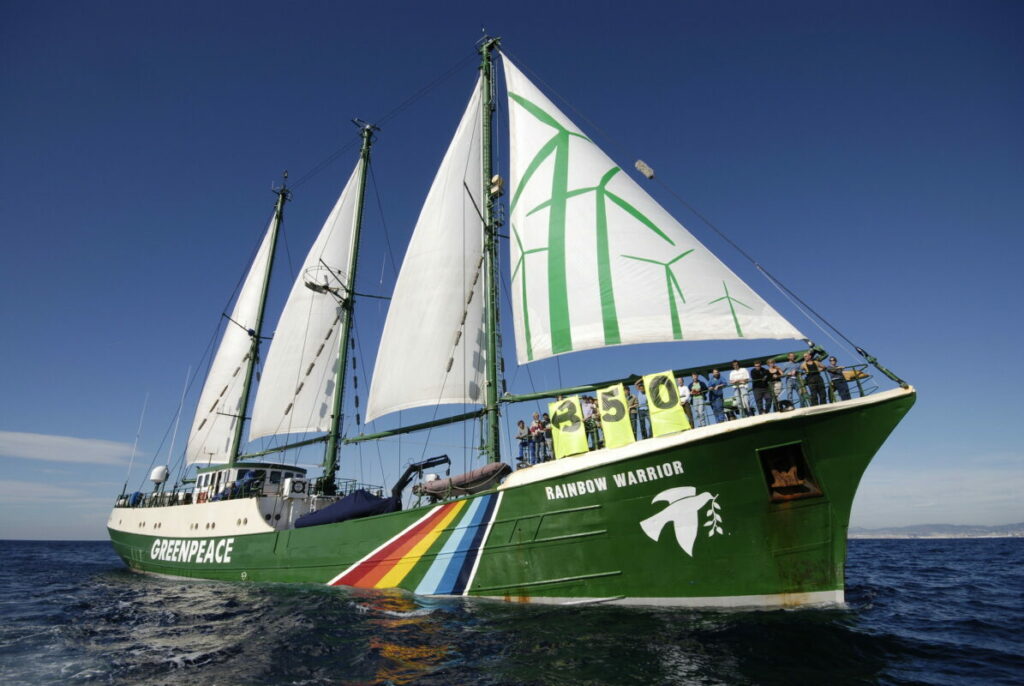Greenpeace has released a report taking aim at 12 European oil companies, which the charity says are only committing 7.3% of their total investments to the energy transition.
The international charity says that fossil fuel company promises of ‘greener investments’ and reaching net zero are ‘greenwashing’, a tactic the organisation Global Witness defines as “making themselves out to be more environmentally friendly than they actually are.”
The report’s key finding is that “There was a one-sided fossil dominance of investments in 2022: 92.7% on average were invested in the continuation of the fossil oil and gas path and only 7.3% in a change towards sustainable energy production and low-carbon solutions.”
The research looked at the balance sheets of the six largest oil companies worldwide (Shell, TotalEnergies, bp, Equinor, Eni, Repsol), as well as six oil companies that “play a central role in the energy transition in their European home markets (OMV, PKN Orlen, MOL Group, Wintershall Dea, Petrol Group, Ina Croatia)”.
Greenpeace says that while these companies’ profits increased on average by 75% in 2022, and revenues by 70%, investments only increased by 37%.
🔴NEW REPORT🔴
— Greenpeace International (@Greenpeace) August 23, 2023
🏭Fossil fuel companies have NO MEANINGFUL PLANS to reduce their carbon emissions or switch to renewables.
🤥 Yet they continue with their GREENWASHING talking about greener investments and net zero trajectories.
📋 @GreenpeaceCEE report: https://t.co/jaJpStCKoF pic.twitter.com/f3aSLXfvPG
“Contrary to public perception, wind and solar power production by big oil companies is still surprisingly low. On average, of the 12 companies, only 0.3% of the energy volume is accounted for by their renewable electricity production and 99.7% by their oil and gas production,” Greenpeace reported.
The charity accuses the oil and gas sector of having a long term strategy based on Carbon Capture and Storage (CCS) and carbon credits to offset their emissions, rather than a transition to renewable energy production. Greenpeace calls these strategies “very controversial approaches whose effectiveness in reducing emissions is doubtful.”
“A far-reaching reduction of emissions is not possible on this path. Although most of the sample companies are committed to “net zero” by 2050, a closer look shows that none of them has developed a coherent strategy to achieve this,” Greenpeace concludes.
The charity has strongly criticised the UK’s recent decision to award hundreds of new oil and gas licenses in the North Sea, with four Greenpeace activists recently being arrested after draping ‘black cloth ‘oil-black fabric’ over Prime Minister Rishi Sunak’s constituency home in Yorkshire while he was on holiday.





